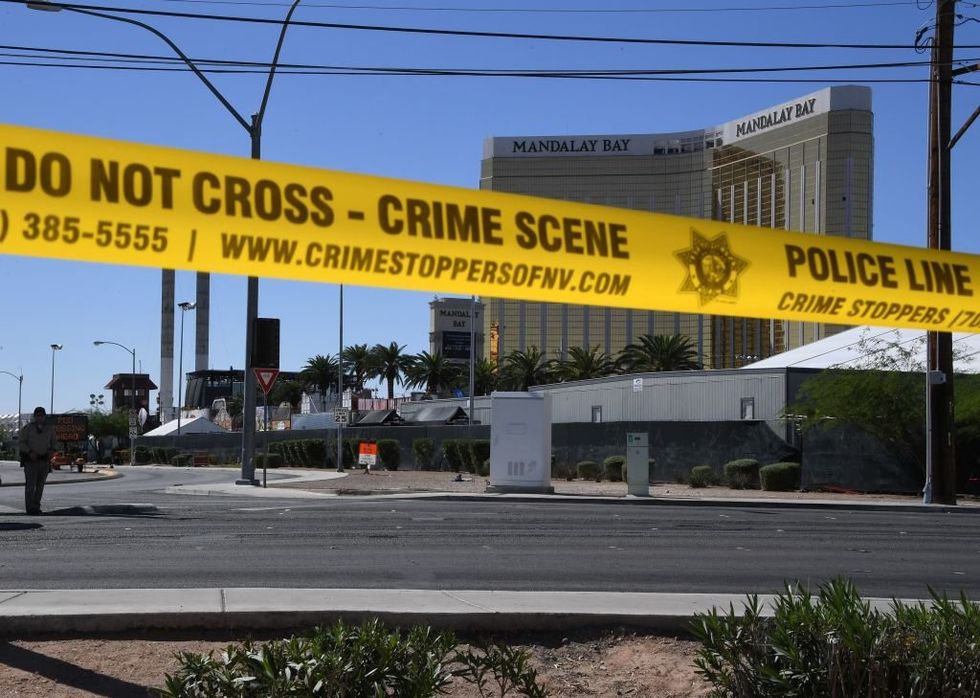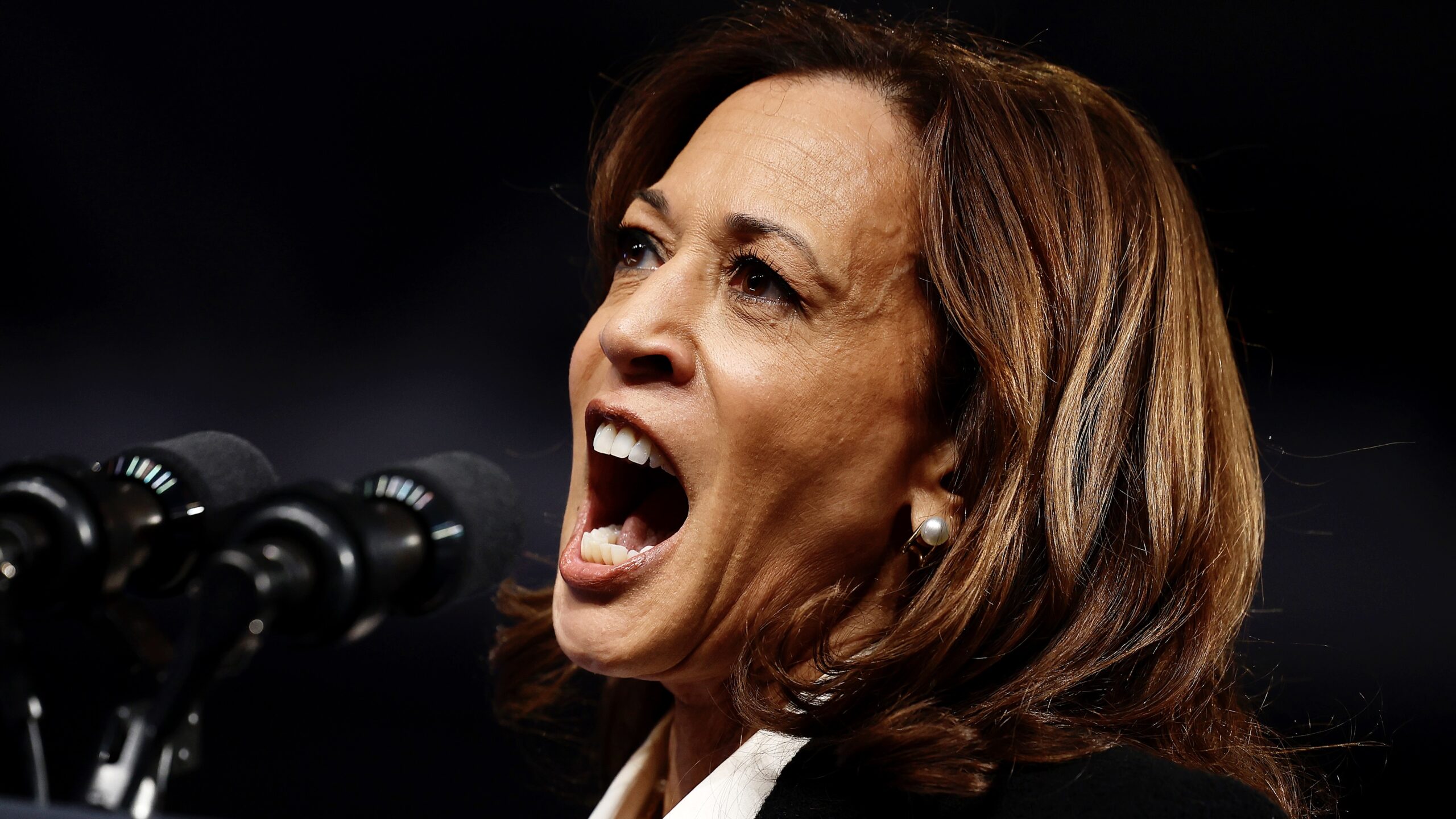2017 Las Vegas shooting: When will we get the full story?
On October 1, 2017, Stephen Paddock opened fire on a crowd of about 22,000 concertgoers attending a country music festival on the Las Vegas Strip. In the space of about 10 minutes, one man killed 58 people and injured hundreds. It was a massacre that scarred the nation and became the deadliest mass shooting by a lone individual in U.S. history. Even more suspiciously, the shooter supposedly used a bump stock — an accessory that makes a rifle function like an automatic weapon but severely reduces its accuracy. Yet the most haunting aspect of it all might not be the event itself but the total lack of answers that followed. An open-and-shut case Paddock, a 64-year-old wealthy, retired accountant, had no criminal history, no clear affiliations, no public signs of radicalization. The FBI, in record time, announced that Paddock had no terrorist ties and was a lone-wolf gunman. This was declared even before a complete timeline of the massacre had been established, before the number of victims had been confirmed, before a single motive had been pinned down. It’s reasonable to wonder, loudly and unapologetically, how the FBI could have known. A crime of this magnitude, involving hundreds of rounds fired into a densely packed crowd, demands careful investigation, not conclusions that seem prepackaged to quell public fears. The FBI moved with an unsettling swiftness to dismiss any links to terror or conspiracies, yet failed to provide any plausible explanation for why a retired accountant would carry out such a calculated and brutal attack. Motive 'undetermined' Stephen Paddock was not the profile of a typical mass shooter. He wasn't an embittered loner nursing a grudge or a young oddball seeking attention. He had no manifesto. He was, at least according to those who knew him, financially comfortable and mostly uninvolved with anything that might explain such a rampage. And yet, within days of the attack, the media and law enforcement assured the American public there was nothing more to see, no bigger plot, just an inexplicable act by an inexplicable man. He had a gambling problem, they suggested, and that’s why he decided to let loose before turning the gun on himself. One needn't be a tinfoil-hat-wearing lifetime subscriber to QAnon to have some very serious questions here. If the timeline of events wasn’t sorted out, if even the total number of victims was still unclear, how could anyone declare with any confidence that Paddock acted alone and without outside influence? Why has the motive remained "undetermined" after years of investigation, with no real attempt to connect the dots? Uncanny marksmanship Police recordings confirmed that there were multiple shooters on different floors of the hotel that day. Witnesses reported seeing muzzle flashes from overhead, possibly from helicopters or drones, but none from Paddock's room. The hotel room showed barely any shell casings; it should have been completely littered. Some witnesses even saw shooters inside the venue itself. Paddock was and still is an implausible perpetrator for this massacre. The .223 caliber rounds fired from his vantage point were at the extreme range of their accuracy, yet somehow hundreds of rounds found their mark in a compact space. Even more suspiciously, the shooter supposedly used a bump stock — an accessory that makes a rifle function like an automatic weapon but severely reduces its accuracy. Growing up on a farm and hunting with my father on a regular basis, I got to know a fair bit about guns. I'm not claiming to be an expert, but I know enough to say this: In the kind of windy conditions you'd get at that height, with buildings all around in an urban setting, the bullets should have been all over the place. Wind drift alone could have thrown them 50 feet off target, yet somehow there were no victims beyond the concert grounds — none in the surrounding hotels or streets. It’s hard to believe that Paddock, with no training or even documented trips to a shooting range, could pull off that level of precision. Also, consider the psychological profile. Mass shooters typically target people they harbor hatred toward. Paddock’s victims, however, were ordinary Americans — demographically and ethnically similar to himself. It just doesn’t add up. A Saudi connection? Then there's the rather disturbing detail recently brought to light by investigative journalist Ian Carroll. On a recent episode of "The Danny Jones Podcast," the renegade researcher discussed not only the number of ridiculously clean head shots found at the scene but also a surprising Vegas visitor. On the very day of the massacre, Saudi Crown Prince Mohammed bin Salman was staying at the Mandalay Bay. Just months earlier, in May 2017, MBS had launched a sweeping purge against his political and business rivals, declaring that "no one will survive in a corruption case — whoever he is, even if he's a prince or a minister." In light of this, it is


On October 1, 2017, Stephen Paddock opened fire on a crowd of about 22,000 concertgoers attending a country music festival on the Las Vegas Strip.
In the space of about 10 minutes, one man killed 58 people and injured hundreds. It was a massacre that scarred the nation and became the deadliest mass shooting by a lone individual in U.S. history.
Even more suspiciously, the shooter supposedly used a bump stock — an accessory that makes a rifle function like an automatic weapon but severely reduces its accuracy.
Yet the most haunting aspect of it all might not be the event itself but the total lack of answers that followed.
An open-and-shut case
Paddock, a 64-year-old wealthy, retired accountant, had no criminal history, no clear affiliations, no public signs of radicalization. The FBI, in record time, announced that Paddock had no terrorist ties and was a lone-wolf gunman. This was declared even before a complete timeline of the massacre had been established, before the number of victims had been confirmed, before a single motive had been pinned down.
It’s reasonable to wonder, loudly and unapologetically, how the FBI could have known.
A crime of this magnitude, involving hundreds of rounds fired into a densely packed crowd, demands careful investigation, not conclusions that seem prepackaged to quell public fears. The FBI moved with an unsettling swiftness to dismiss any links to terror or conspiracies, yet failed to provide any plausible explanation for why a retired accountant would carry out such a calculated and brutal attack.
Motive 'undetermined'
Stephen Paddock was not the profile of a typical mass shooter. He wasn't an embittered loner nursing a grudge or a young oddball seeking attention. He had no manifesto. He was, at least according to those who knew him, financially comfortable and mostly uninvolved with anything that might explain such a rampage.
And yet, within days of the attack, the media and law enforcement assured the American public there was nothing more to see, no bigger plot, just an inexplicable act by an inexplicable man. He had a gambling problem, they suggested, and that’s why he decided to let loose before turning the gun on himself.
One needn't be a tinfoil-hat-wearing lifetime subscriber to QAnon to have some very serious questions here. If the timeline of events wasn’t sorted out, if even the total number of victims was still unclear, how could anyone declare with any confidence that Paddock acted alone and without outside influence? Why has the motive remained "undetermined" after years of investigation, with no real attempt to connect the dots?
Uncanny marksmanship
Police recordings confirmed that there were multiple shooters on different floors of the hotel that day. Witnesses reported seeing muzzle flashes from overhead, possibly from helicopters or drones, but none from Paddock's room. The hotel room showed barely any shell casings; it should have been completely littered. Some witnesses even saw shooters inside the venue itself.
Paddock was and still is an implausible perpetrator for this massacre. The .223 caliber rounds fired from his vantage point were at the extreme range of their accuracy, yet somehow hundreds of rounds found their mark in a compact space. Even more suspiciously, the shooter supposedly used a bump stock — an accessory that makes a rifle function like an automatic weapon but severely reduces its accuracy.
Growing up on a farm and hunting with my father on a regular basis, I got to know a fair bit about guns. I'm not claiming to be an expert, but I know enough to say this: In the kind of windy conditions you'd get at that height, with buildings all around in an urban setting, the bullets should have been all over the place.
Wind drift alone could have thrown them 50 feet off target, yet somehow there were no victims beyond the concert grounds — none in the surrounding hotels or streets. It’s hard to believe that Paddock, with no training or even documented trips to a shooting range, could pull off that level of precision.
Also, consider the psychological profile. Mass shooters typically target people they harbor hatred toward. Paddock’s victims, however, were ordinary Americans — demographically and ethnically similar to himself. It just doesn’t add up.
A Saudi connection?
Then there's the rather disturbing detail recently brought to light by investigative journalist Ian Carroll. On a recent episode of "The Danny Jones Podcast," the renegade researcher discussed not only the number of ridiculously clean head shots found at the scene but also a surprising Vegas visitor.
On the very day of the massacre, Saudi Crown Prince Mohammed bin Salman was staying at the Mandalay Bay. Just months earlier, in May 2017, MBS had launched a sweeping purge against his political and business rivals, declaring that "no one will survive in a corruption case — whoever he is, even if he's a prince or a minister." In light of this, it isn’t unreasonable to question whether there might be a Saudi connection to the massacre. After all, let’s not forget 9/11.
But there’s more.
Consider the fact that at least eight key witnesses have died under suspicious circumstances since 2017. Each of these individuals held information that contradicted the official account. Four of them spoke to the media, insisting that there was more than one shooter, while others died mysteriously before they could go public.
With these disturbing loose ends and unanswered questions, why has one of the nation’s deadliest massacres been so easily swept under the rug? Why was this catastrophe treated like an inconvenient news cycle instead of an atrocity demanding a thorough and transparent investigation? The truth still escapes us, and the silence from officials only makes the mystery — and the doubt — deepen.
We must never forget what happened on October 1, 2017, even if those in power would rather we did.
Originally Published at Daily Wire, World Net Daily, or The Blaze
What's Your Reaction?

































































































